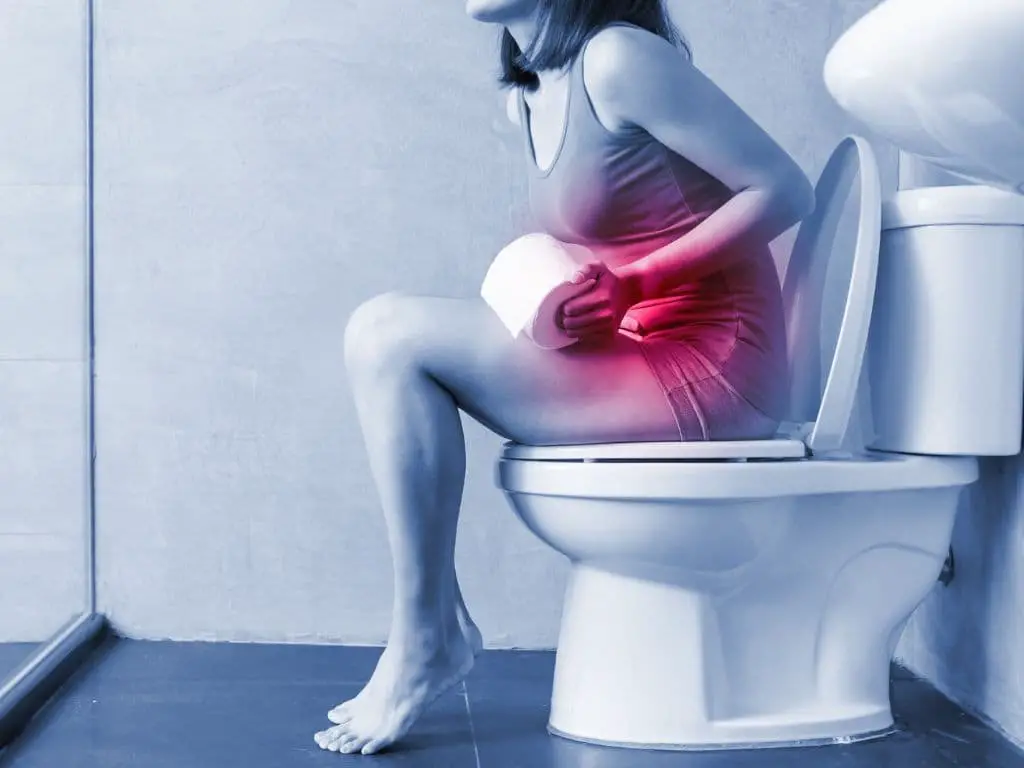Can’t Poop Even After Taking Laxatives: Causes and Solutions
The inability to have a bowel movement even after taking laxatives can be due to several reasons including chronic constipation, irritable bowel syndrome, or a blockage in the intestines. Overuse or misuse of laxatives can also cause the body to become dependent on them, leading to further constipation when not taking the medication. Additionally, certain medications, metabolic disorders, and lifestyle factors such as inadequate fiber or fluid intake, lack of exercise, or ignoring the urge to have a bowel movement can contribute to constipation.

What Are Laxatives?
Laxatives are a type of medicine that helps stimulate or facilitate bowel movements, thus relieving constipation. They work by increasing the water content in the intestine, softening the stool, or stimulating the intestinal muscles to push the stool out. Laxatives are widely available over-the-counter without a prescription and are commonly used for short-term relief of occasional constipation.
There are several types of laxatives, each working in a different way. The main types include:
- Bulk-forming laxatives: These work by absorbing water to form a soft, bulky stool, which triggers the bowel to contract and move the stool out. Examples include ispaghula husk, methylcellulose, and sterculia.
- Osmotic laxatives: These draw water into the bowel from the nearby tissue, softening the stool and making it easier to pass. Examples include lactulose and macrogols.
- Stimulant laxatives: These stimulate the nerves in the bowel, speeding up bowel movements. Examples include senna, bisacodyl, and sodium picosulfate.
- Stool softeners: These increase the amount of water absorbed by the stools, making them softer and easier to pass. Docusate sodium is an example.
- Lubricant laxatives: These work by coating the surface of the stools, thereby preventing water from being absorbed out of the stools and making them softer and easier to pass. Mineral oil is an example.
Laxatives are generally safe for most people to use occasionally. However, they should not be used regularly without consulting a healthcare provider, as overuse can lead to dependency, dehydration, electrolyte imbalance, and other health problems. It’s also important to note that laxatives do not aid in weight loss, and their misuse can lead to serious health consequences.
Certain individuals, including those with eating disorders, the elderly, and those taking certain medications, may be at higher risk for laxative misuse or overuse. In such cases, it’s essential to seek medical advice before using laxatives.
Why Might Laxatives Not Work?
Laxatives may not work for several reasons. The effectiveness of laxatives can depend on the type of laxative and the specific cause of constipation.
Incorrect Use: Laxatives may not work if they are not used as directed. This can include not taking the correct dosage or not using them at the right time.
Chronic Constipation: In cases of chronic constipation, the body may become reliant on laxatives for bowel movements. Over time, the body may become desensitized to the laxatives and they may become less effective.
Underlying Medical Conditions: Certain medical conditions can cause constipation that is resistant to laxatives. These conditions can include neurological disorders, metabolic and endocrine disorders, bowel cancer, diverticulitis, and certain systemic conditions like scleroderma. In these cases, treating the underlying condition may help to alleviate the constipation.
Dehydration: Not drinking enough fluids can make stools hard and difficult to pass, even with the use of laxatives. Drinking plenty of water and other fluids can help to soften stools and make them easier to pass.
Insufficient Fiber Intake: Lack of fiber in the diet can lead to constipation. Fiber helps to bulk up stools and make them softer and easier to pass. Even with the use of laxatives, a diet low in fiber can lead to constipation.
Medication Interactions: Certain medications can cause constipation or make it worse. These can include antacids that contain aluminum, antispasmodics, antidepressants, tranquilizers, and sedatives, bismuth salts, iron supplements, diuretics, anticholinergics, and calcium-channel blockers. If you are taking any of these medications and experiencing constipation, it’s best to consult your doctor.
Lack of Physical Activity: Regular physical activity can help to stimulate the muscles in the gut and promote regular bowel movements. Lack of physical activity can lead to constipation, and laxatives may not be effective if you are not also getting regular exercise.
If laxatives are not working, it is important to consult a healthcare professional who can provide further advice and treatment options. This could involve a change in diet, lifestyle modifications, or a different type of medication. In severe cases, a healthcare professional may recommend further tests to determine the cause of the constipation.
What Can You Do If Laxatives Don’t Work?
If a laxative is not working after 12 hours, it is advisable to first identify the type of laxative taken as some types, such as bulk-forming and osmotic laxatives, may take longer to work. Increasing water intake and physical activity can also help stimulate bowel movements. However, if constipation persists, it is recommended to consult with a healthcare provider as it may indicate an underlying medical condition or the need to adjust the dosage or type of laxative.
If laxatives are not providing relief from constipation, there are several alternative strategies that one can consider. It’s important to remember that everyone’s body responds differently, and what works for one person may not work for another.
Firstly, dietary changes can have a significant impact on bowel movements. Increasing the intake of dietary fiber can help to soften stools and make them easier to pass. Foods that are high in fiber include fruits, vegetables, whole grains, and legumes.
Increasing fluid intake can also help to alleviate constipation. Drinking plenty of water can help to soften stools and promote regular bowel movements. Some people may also find relief from drinking warm liquids, such as herbal tea or warm lemon water, especially in the morning.
Physical activity is another important factor in maintaining regular bowel movements. Regular exercise helps to stimulate the natural contraction of intestinal muscles, aiding in the movement of stool through the intestines.
Stress and emotional health can also play a role in constipation. Techniques for managing stress, such as meditation, deep breathing exercises, or yoga, may help to alleviate constipation.
Biofeedback therapy, which trains people to control bodily processes that are normally automatic, may be helpful in cases where constipation is caused by pelvic floor dysfunction. This therapy can help individuals learn to relax and coordinate muscles in the pelvic floor.
In some instances, over-the-counter laxatives may not work because the constipation is a symptom of an underlying medical condition, such as irritable bowel syndrome, thyroid disease, diabetes, or Parkinson’s disease. In such cases, treating the underlying condition may alleviate the constipation.
It’s essential to respond to natural urges to have a bowel movement and not to ignore them. Over time, ignoring the urge can lead to chronic constipation.
If constipation persists despite trying these strategies, it’s important to consult with a healthcare professional. They can assess for any underlying conditions that may be causing the constipation and suggest appropriate treatments. In some cases, prescription medications or other therapies may be necessary.
When Should You See a Doctor?
You should consider seeing a doctor for constipation if your symptoms persist for more than three weeks, or if the condition is causing significant distress and interfering with your daily activities. Other indications to consult a healthcare provider include severe, persistent pain in the rectum or abdomen, unexplained weight loss, and symptoms of complications related to constipation such as hemorrhoids. It is particularly important to see a doctor if you notice rectal bleeding, as this could be a sign of a more serious medical condition.
What Are the Risks of Overusing Laxatives?
Overusing laxatives can lead to a number of health risks and adverse effects. Laxatives are primarily used for treating constipation, but when used inappropriately or for extended periods of time, they can cause harmful effects on the body.
One common risk associated with laxative overuse is dehydration. Laxatives work by drawing water into the intestines from the body, which can lead to excessive water loss. Symptoms of dehydration can include thirst, less frequent urination, dark-colored urine, fatigue, dizziness, and confusion.
Electrolyte imbalance is another risk of laxative overuse. Electrolytes such as potassium, sodium, and magnesium are crucial for normal function of the body’s cells and organs. Chronic laxative use can cause these electrolytes to become imbalanced, which can lead to serious health problems such as heart disease and muscle weakness.
Long-term use of certain types of laxatives can also damage the colon’s nerve cells and interfere with the colon’s ability to contract. This condition, known as laxative dependency, can lead to chronic constipation and can make it difficult for the body to naturally pass stool without the aid of laxatives.
Laxative abuse is common in people with eating disorders as a method of weight control. However, this practice is dangerous and can lead to serious health problems. Using laxatives for weight loss can lead to severe dehydration, electrolyte imbalances, and other serious health complications.
Overuse of stimulant laxatives, in particular, can cause the bowel to become unresponsive and reliant on the laxative, a condition known as laxative bowel or lazy bowel syndrome. This can result in a vicious cycle of constipation and laxative use.
In some cases, long-term overuse of laxatives can mask more serious underlying conditions. For instance, constipation could be a symptom of a neurological disorder, metabolic or endocrine disorder, bowel cancer, or diverticulitis.
Therefore, while laxatives can be beneficial for short-term relief from constipation, their long-term use or misuse can lead to serious health complications. As such, they should only be used under the guidance of a healthcare professional and lifestyle changes such as increased dietary fiber, fluid intake, and exercise should be considered as first-line treatments for constipation.
What Are the Alternatives to Laxatives?
There are several alternatives to laxatives for treating constipation, including dietary changes, lifestyle modifications, and other treatments.
- Dietary Changes: Increasing the intake of dietary fiber can help soften stools and make them easier to pass. Foods that are high in fiber include fruits, vegetables, whole grains, and legumes. In some cases, adding a fiber supplement to the diet can also be beneficial. Staying hydrated by drinking plenty of fluids, particularly water, can also help prevent constipation.
- Lifestyle Modifications: Regular physical activity can stimulate the muscles in the intestines and help move stool through the digestive tract. Establishing a regular bathroom routine can also be helpful. When the urge to have a bowel movement occurs, it’s important not to ignore it, as this can lead to constipation.
- Probiotics: These are beneficial bacteria that can help improve gut health and regularity. They can be found in fermented foods like yogurt, kefir, and sauerkraut, or taken as a supplement.
- Biofeedback: This is a type of physical therapy that can help individuals retrain their bowel muscles for better control.
- Stool Softeners: These are a type of over-the-counter medication that can help moisten the stool and make it easier to pass. They are different from laxatives in that they don’t stimulate the bowel to move.
- Prescription Medications: In some cases, when constipation is chronic and not responsive to other treatments, prescription medications may be used. These can include drugs that draw water into the intestines to soften stool, or drugs that stimulate the muscles in the intestines to contract.
- Natural Remedies: Some herbs and natural remedies are also used to treat constipation, such as aloe vera, senna, and psyllium husk. However, these should be used with caution and under the guidance of a healthcare provider, as they can have side effects.
Before starting any new treatment for constipation, it’s important to discuss the options with a healthcare provider. They can provide guidance on the most effective and safe treatments based on an individual’s specific symptoms and overall health.
Can Drinking Water Help with Constipation?
Drinking water is often recommended as a part of the treatment for constipation. Water plays a crucial role in digestion and maintaining a healthy digestive system. It helps to soften the stool and stimulate bowel movements, making it easier to pass. Dehydration, on the other hand, can make constipation worse. The colon absorbs water from the food you consume, and if you’re not drinking enough fluids, the colon soaks up more water from the stool, making it hard and dry.
Therefore, increasing fluid intake is often a part of the advice given to individuals suffering from constipation. This could include drinking more water, as well as other fluids like fruit juices. However, it’s worth noting that while drinking water can help ease constipation, it may not be sufficient in all cases, especially if the constipation is severe or chronic.
Does Drinking Hot Water Help with Constipation?
Drinking hot water can potentially aid in relieving constipation. Increased fluid intake is generally recommended as part of the treatment for constipation, as it can help keep the stool soft and easier to pass. Hot water, specifically, can stimulate blood flow to the intestines and help the bowel move more efficiently. Drinking a glass of hot or warm water in the morning on an empty stomach can improve bowel movements and relieve constipation symptoms.
While increasing fluid intake can be beneficial, it may not be sufficient on its own to alleviate constipation for everyone.






